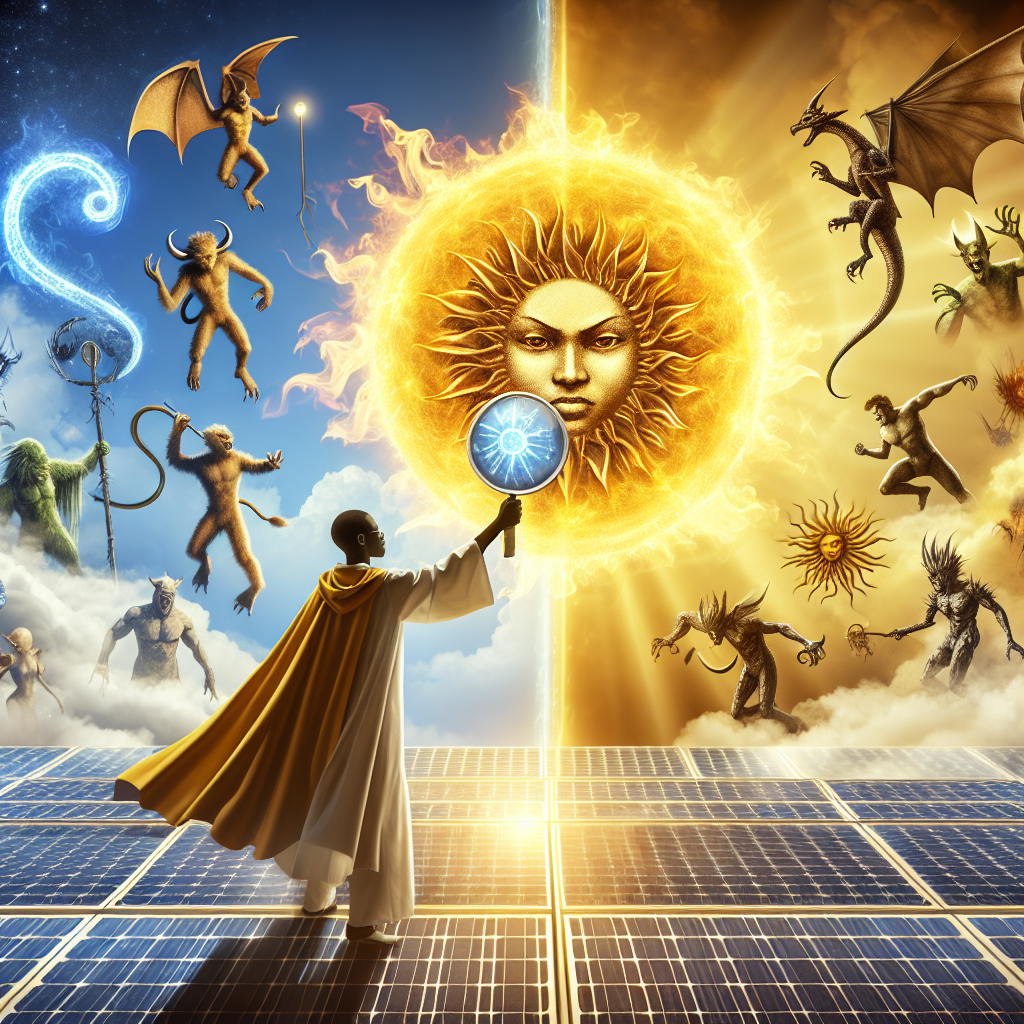Solar energy is becoming increasingly popular as a clean, renewable source of energy. However, misinformation can lead to confusion and skepticism about its potential. In this article, we’ll debunk common myths surrounding solar energy and clarify the many benefits of harnessing the sun’s power.
Myth 1: Solar Panels Are Too Expensive
One of the most commonly held beliefs is that solar panels are prohibitively expensive. While the upfront investment can be significant, prices have drastically decreased over the past decade. According to reports from the Solar Energy Industries Association, the cost of solar photovoltaic (PV) systems has dropped by nearly 82% since 2010!
The Real Cost of Solar: Incentives and Savings
Moreover, various federal and state incentives can significantly reduce initial installation costs. Tax credits, rebates, and financing options make solar more accessible than ever. In the long run, solar energy can lead to substantial savings on electricity bills, often paying for itself within a few years.
Myth 2: Solar Energy Is Not Reliable
Another prevalent myth is that solar energy is unreliable, primarily due to weather conditions. Critics argue that solar panels cannot generate power when it’s cloudy or at night.
Harnessing Solar Power with Technology
In reality, modern solar systems are equipped with sophisticated technology that optimizes energy production, even during overcast days. Additionally, energy storage systems, such as batteries, allow homeowners to store excess energy generated during sunny days for use later.
Myth 3: Solar Panels Require Too Much Maintenance
Many people believe that solar panels are high-maintenance and require constant care. While it’s true that any technology can benefit from regular checks, solar panels are designed to be durable and low-maintenance.
Easy Care for Solar Systems
Most solar systems need minimal maintenance—typically just a regular cleaning to remove debris and dirt. Many manufacturers offer warranties of 25 years or more, underscoring their reliability and longevity. So, if you’re concerned about how much time and effort solar energy would take, worry not!
Myth 4: Solar Energy Isn’t Environmentally Friendly
Some argue that solar panels and related technology have a significant environmental footprint due to the materials and processes involved in their production.
The Eco-Friendliness of Solar Energy
While it’s true that the manufacturing of solar panels does involve some environmental impact, these emissions are far outweighed by the clean energy generated over their lifespan. In fact, a study by the National Renewable Energy Laboratory found that the energy payback time for solar panels has drastically improved, with most panels generating more energy than was used in their production within just 1-2 years.
Myth 5: Solar Energy Only Works in Sunny Places
Many people mistakenly believe solar panels only work effectively in areas that receive constant sunshine.
Solar Energy Adaptability
In truth, solar technology has progressed to the point where it can harness sunlight effectively in various climates. Solar panels are effective in both sunny and cloudy conditions, and innovative designs allow for energy generation even in less-than-ideal sunlight scenarios. Places that experience chilly weather can still benefit from solar energy, as panels can absorb sunlight effectively even in overcast conditions.
Myth 6: Solar Energy Is Only for Homeowners
Some believe that solar energy is only an option for those who own their homes, leaving renters and apartment dwellers out of the equation.
Solutions for Renters
Fortunately, that’s not the case! Community solar programs have emerged in various areas, allowing renters and apartment dwellers to participate in solar energy without needing a rooftop installation. By subscribing to a community solar project, these individuals can still benefit from solar energy and often save on their electricity bills.
The Future Is Bright for Solar Energy
As more people become aware of the myths and realities surrounding solar energy, it paves the way for a more sustainable future. With technology continuing to advance and costs decreasing, solar energy is not just a feasible option; it is becoming a mainstream source of power.
Get Involved
If you’re considering adopting solar energy, take the time to educate yourself further. Consult local installers, read reviews, and analyze how solar can fit into your energy needs. Remember, the future of our planet may depend on your choice to embrace clean, renewable energy. Let’s shine a light on solar energy together!
In conclusion, by debunking these common myths, we hope to inspire a more informed perspective on solar energy. Ultimately, making the switch to solar is not just an investment in home energy costs; it’s an investment in our planet’s future.


